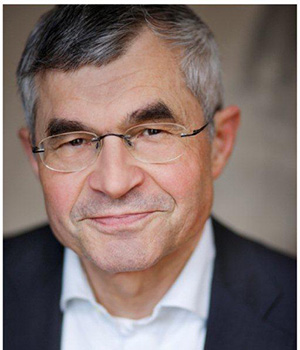Occupational medicine: Research, Teaching, ethics, clinical practise/expert opinion
 Xaver Baur, MD, has devoted much of his academic career to broad questions of occupational and environmental medicine.
Xaver Baur, MD, has devoted much of his academic career to broad questions of occupational and environmental medicine.
His career research contributions have been mainly in the areas of lung function measurements, allergic disorders, including occupational asthma, hazardous exposures to inorganic dust, allergens, pollution, chemicals such as isocyanates. In focusing on research and policy he has been addressing questions of relevance to public health and ethics in occupational and environmental health. Xaver Baur has being consulted from around the world as an independent expert witness and speaker. He is president of the charity European Society for Environmental and Occupational Medicine which fosters independent research in occupational, public and environmental health, open EOM Website

Alles Fake? Wissenschaft im Zeitalter der vielen Wahrheiten
Most interesting presentations at the 7. BfR-Stakeholderkonferenz on15. November 2018 (German). Topic: „Fake news“ - which increasingly meets science
Occupational health: a world of false promises
United Nations agencies, WHO and the International Labor Organization (ILO), are faced with the global problem of inadequate worker protections and a growing crisis in occupational health
By Joseph LaDou, Leslie London and Andrew Watterson:
“The United Nations currently has limited ability to take on the problems of a globalized world and has limited capacity to affect major issues within member states. But it can have a useful influence in facilitating stronger oversight by broader civil society. It can do this by strengthening the national and global civil society voice in WHO and ILO structures, and by keeping conflict of interest out of policy decisions. Corporate influence on international organisations is not a new problem. It goes on in all member states and is evidenced in the neglect of occupational health and safety, and the weakness of workers’ compensation laws, in all developing countries.
UN agencies should develop stronger and unambiguous processes to manage conflict of interest in ways that equalize the influence of powerful interests with those of communities, Non-Governmental Organizations, Civil Society Organizations and Social Movements. More support should be given to protect the WHO from industry attacks and to help it increase its supply of information on occupational health and safety to developing countries, free of industry influence.”
On the other hand, the authors suggest that “the staff assigned to WHO and ILO agencies responsible for occupational health and safety should have appropriate credentials and backgrounds. The selection
process is currently removed from public view, and not subject to approval by relevant international authorities.
There is no current method of finding conflicts of interest in staff assignments. An international organization with no industry bias exists in the Collegium Ramazzini, headquartered in Bologna, Italy. The Collegium should be considered as an independent approval authority for WHO and ILO staff positions, and for technical review of publications“.
in: https://ehjournal.biomedcentral.com/articles/10.1186/s12940-018-0422-x



